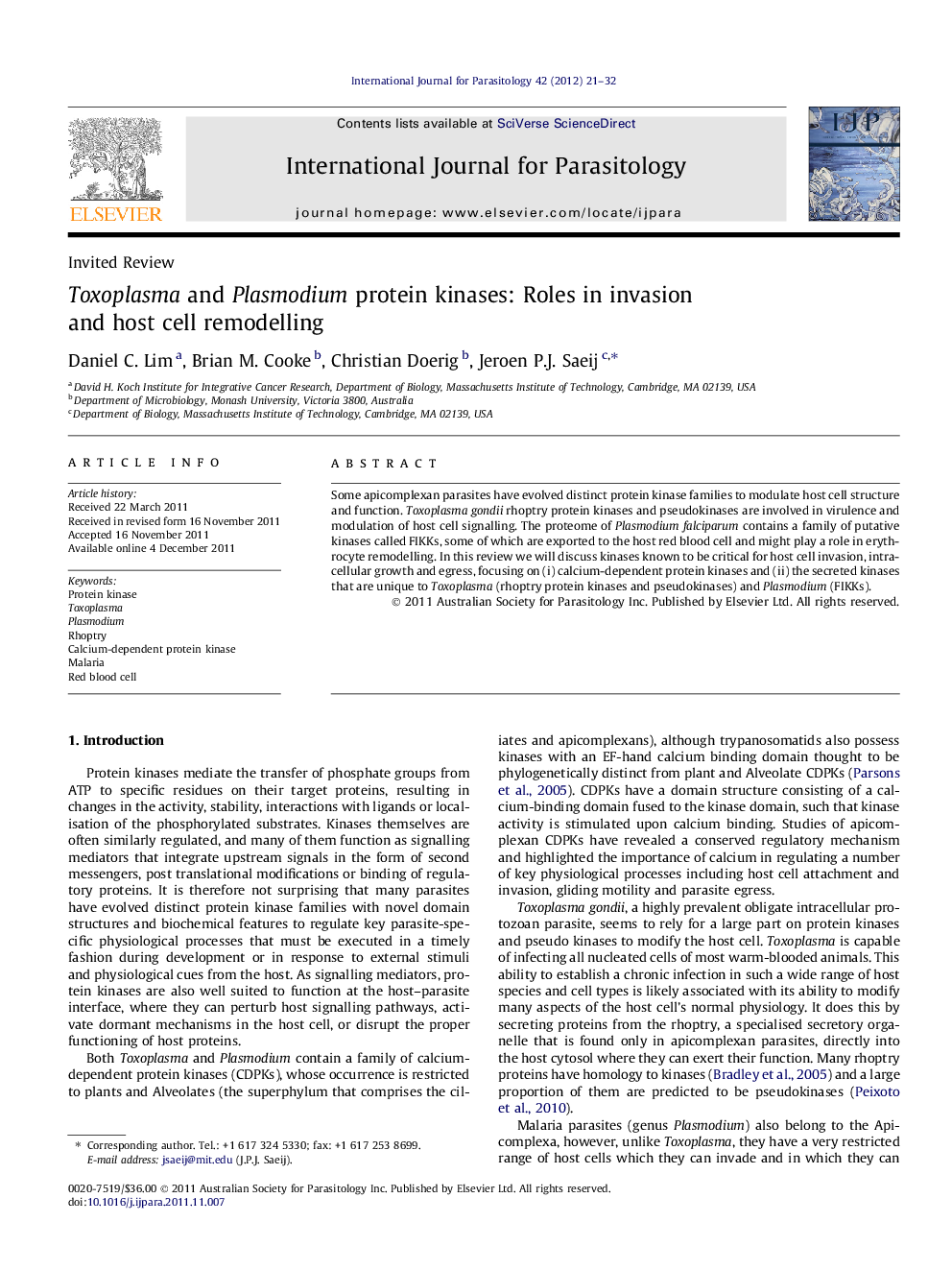| Article ID | Journal | Published Year | Pages | File Type |
|---|---|---|---|---|
| 2436128 | International Journal for Parasitology | 2012 | 12 Pages |
Some apicomplexan parasites have evolved distinct protein kinase families to modulate host cell structure and function. Toxoplasma gondii rhoptry protein kinases and pseudokinases are involved in virulence and modulation of host cell signalling. The proteome of Plasmodium falciparum contains a family of putative kinases called FIKKs, some of which are exported to the host red blood cell and might play a role in erythrocyte remodelling. In this review we will discuss kinases known to be critical for host cell invasion, intracellular growth and egress, focusing on (i) calcium-dependent protein kinases and (ii) the secreted kinases that are unique to Toxoplasma (rhoptry protein kinases and pseudokinases) and Plasmodium (FIKKs).
Graphical abstractFigure optionsDownload full-size imageDownload high-quality image (100 K)Download as PowerPoint slideHighlights► Toxoplasma rhoptry kinases and pseudokinases are key virulence determinants. ► Toxoplasma rhoptry kinases and pseudokinases are involved in the modulation of host cell signalling. ► Plasmodium exported kinases play a role in the modulation of the erythrocyte. ► Apicomplexan calcium-dependent kinases play an important role in invasion and egress.
